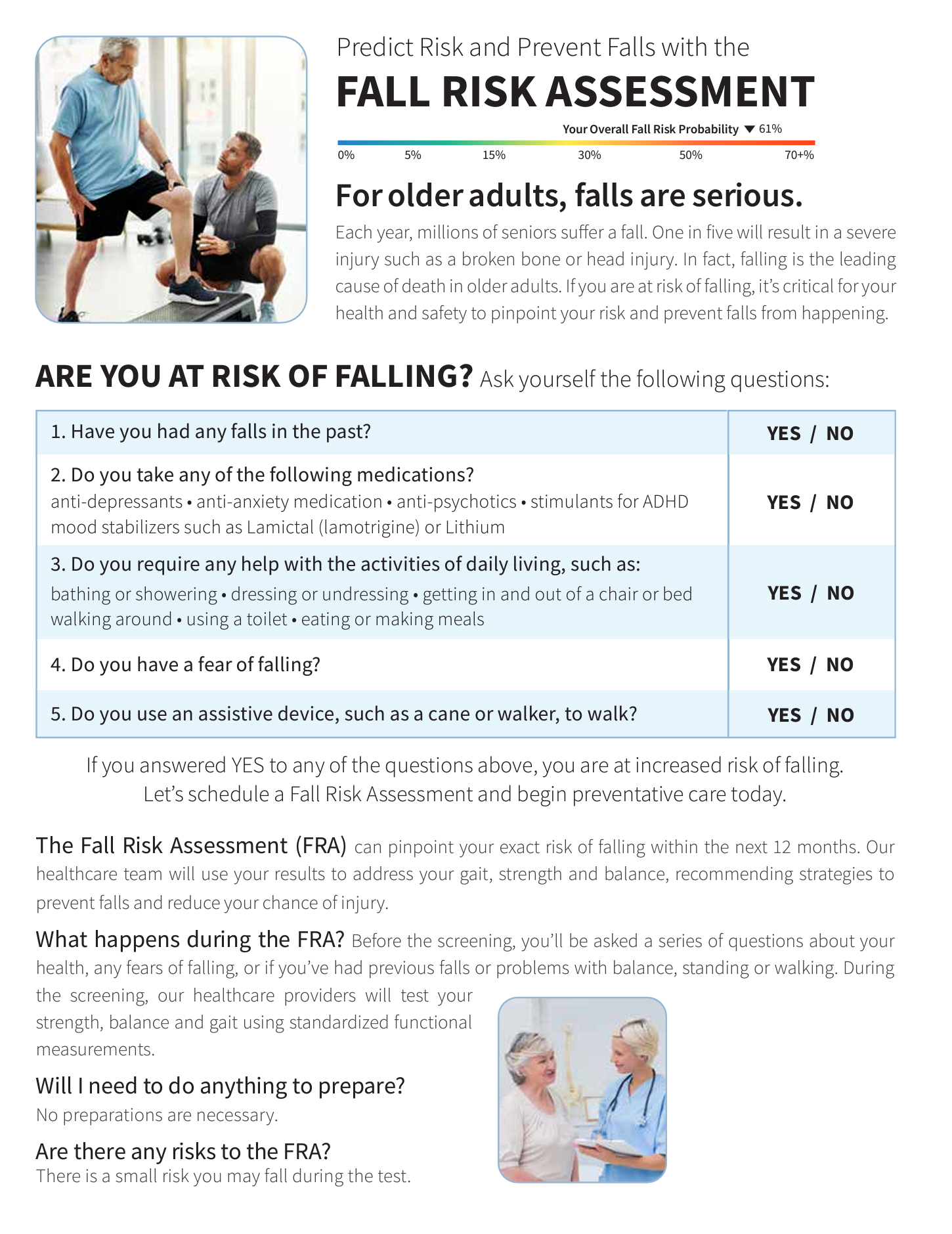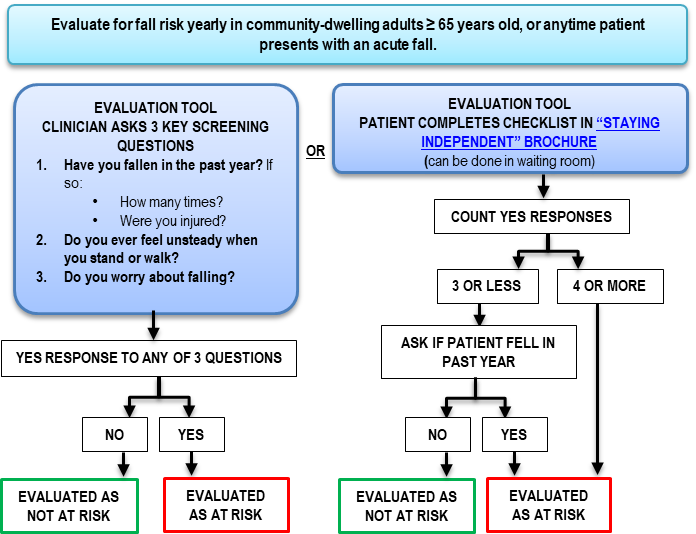The Of Dementia Fall Risk
Table of Contents10 Easy Facts About Dementia Fall Risk DescribedUnknown Facts About Dementia Fall RiskGetting My Dementia Fall Risk To WorkThe Facts About Dementia Fall Risk UncoveredWhat Does Dementia Fall Risk Do?
Ensure that there is a marked location in your clinical charting system where personnel can document/reference ratings and record relevant notes related to fall avoidance. The Johns Hopkins Loss Threat Analysis Tool is one of several tools your staff can utilize to help prevent damaging clinical events.Person falls in hospitals are usual and incapacitating adverse occasions that linger in spite of decades of effort to minimize them. Improving interaction across the analyzing registered nurse, care group, client, and client's most entailed family and friends may enhance loss prevention efforts. A group at Brigham and Female's Healthcare facility in Boston, Massachusetts, sought to create a standardized autumn avoidance program that focused around enhanced interaction and person and family members engagement.
.png)
The advancement group highlighted that effective execution depends on individual and staff buy-in, combination of the program right into existing workflows, and fidelity to program procedures. The team kept in mind that they are grappling with just how to guarantee connection in program execution during periods of dilemma. Throughout the COVID-19 pandemic, for example, a boost in inpatient drops was connected with restrictions in patient interaction in addition to constraints on visitation.
The 8-Second Trick For Dementia Fall Risk
These events are typically considered avoidable. To implement the intervention, companies need the following: Accessibility to Fall pointers sources Loss pointers training and re-training for nursing and non-nursing personnel, including new registered nurses Nursing operations that permit for person and household interaction to carry out the falls analysis, ensure use the avoidance plan, and conduct patient-level audits.
The outcomes can be very harmful, typically speeding up patient decrease and triggering longer health center stays. One research approximated stays increased an added 12 in-patient days after an individual autumn. The Fall TIPS Program is based upon appealing patients and their family/loved ones across three major processes: analysis, customized preventative interventions, and bookkeeping to make sure that clients are taken part in the three-step loss prevention process.
The patient analysis is based on the Morse Fall Scale, which is a verified loss risk evaluation device for in-patient hospital setups. The scale includes the six most usual reasons patients in hospitals drop: the client fall background, risky conditions (consisting of polypharmacy), use IVs and other outside tools, mental status, stride, and wheelchair.
Each risk variable links with one or even more workable evidence-based treatments. The nurse creates a strategy that integrates the interventions and shows up to the treatment team, patient, and family on a laminated poster or published visual aid. Registered nurses create the strategy while consulting with the person and the client's household.
Facts About Dementia Fall Risk Revealed
The poster works as a communication tool with various other participants of the patient's care team. Dementia Fall Risk. The audit element of the program consists of evaluating the individual's understanding of their risk factors and prevention strategy at the system and medical facility degrees. Registered nurse champs carry out at the very least 5 individual meetings a month with individuals and their families to inspect for understanding of the autumn avoidance strategy

An estimated 30% of these drops cause injuries, which can range in severity. Unlike various other damaging occasions that need a standardized clinical response, loss avoidance depends have a peek at this site very on the demands of the individual. Including the input of people that know the person finest allows for better modification. This technique has confirmed to be much more effective than loss prevention programs that are based largely on the manufacturing of a risk rating and/or are not personalized.
10 Easy Facts About Dementia Fall Risk Shown

Based upon auditing outcomes, one site had 86% conformity and two websites had my website over 95% compliance. A cost-benefit analysis of the Loss ideas program in eight health centers estimated that the program expense $0.88 per person to carry out and resulted in financial savings of $8,500 per 1000 patient-days in direct costs related to the prevention of 567 falls over three years and 8 months.
According to the advancement group, organizations thinking about carrying out the program needs to perform a readiness assessment and falls prevention spaces analysis. 8 Furthermore, companies must make certain the necessary infrastructure and workflows for implementation and establish an application strategy. If one exists, the company's Loss Prevention Task Force should be included in planning.
The Single Strategy To Use For Dementia Fall Risk
To start, companies must make sure conclusion of training components by registered nurses and nursing aides - Dementia Fall Risk. Healthcare facility personnel should evaluate, based on the needs of a health center, whether to utilize an electronic health and wellness record printout or paper version of the fall avoidance plan. Executing groups need to recruit and train registered nurse champs and establish procedures for auditing and reporting on loss data
Staff require to be associated with the process of redesigning the process to involve clients and family in the analysis and prevention strategy process. Equipment ought to be in area to ensure that units can comprehend why an autumn took place and remediate the cause. Extra specifically, registered nurses should have networks to provide continuous informative post responses to both staff and system management so they can change and boost fall avoidance process and connect systemic troubles.